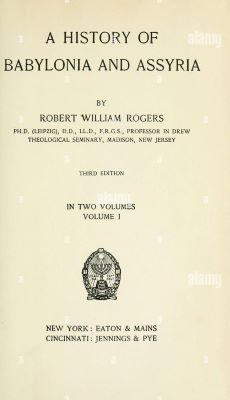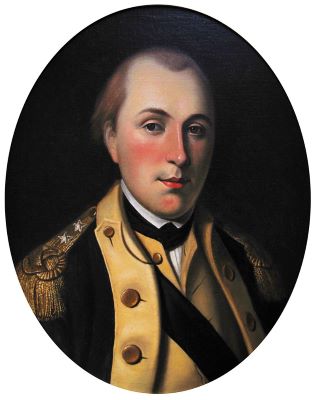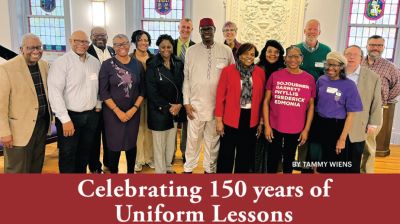
Before turning the mere three-year anniversary of the insurrection by our Confederacy-loving former President, we should start at the very beginning. The semiquincentennial for the American Revolution really begins to take shape in 2024 even though 1774 does not get the attention of other years.
Last year ended with the spectacular Boston Tea Party on December16. Kudos to the city of Boston and the state of Massachusetts for putting on a great show. In case you missed, you can watch it at https://www.december16.org/
In the popular mind, the next big event is the Battle of Lexington and Concord on April 19, 1775. The battle includes the famous “shot heard ‘round the world. It follows the equally famous ride of Paul Revere. All these events and sayings have become part of American mythology, part of the narrative taught in textbooks for many generations.
Now name an event from 1774? Unless you are a scholar or in the American history business in some way, there is a good chance your mind will draw a blank. As we shall see, it is the events of 1774 that may have more bearing on the events today than any other. For as it turns out, we will not only be commemorating them we will be reliving them. How we do so may well determine if we remain a country as we know it or if the third civil war succeeds whereas the first two failed.
THE BRITISH RESPONSE TO THE BOSTON TEA PARTY
The British did not take kindly to the events in Boston in December, 1773. It responded with what are known as the Coercive Acts or the Intolerable Acts, a good indication of how the colonists reacted to these new British laws.
First, the British wanted their money back. They wanted to be compensated for the tea destroyed and passed the Boston Port Act. The act closed the port of Boston thereby punishing all Bostonians whether they had participated in the Boston Tea Party or not. The closure was to remain until such time as full recompense was made.
Second, and more egregiously, Massachusetts lost its charter under the Massachusetts Government Act. Henceforth it was to be governed by the British government. Many officials now were to be appointees by the crown, Parliament, or the governor instead of elected by the people. Towns throughout the colony were circumscribed by being limited to one annual meeting.
Third, the Administration of Justice Act permitted trials of accused royal officials to be held in Britain or elsewhere in the Empire at the discretion of the royal governor to ensure such officials could get a fair trial not possible in Massachusetts. Exactly who would testify against royal officials in distant lands essentially rendered such trials irrelevant.
Fourth and finally, a new method was devised for the housing of British troops through the Quartering Act. The old policy in quartering troops had proved unsuccessful. Now other buildings could be used if suitable quarters were not available.
As one might expect, these coercive acts were considered intolerable.
1774
The book 1774 by Mary Beth Norton covers this time including the colonial response to the British response to the Boston Tea Party leading up to the Battle of Lexington and Concord in 1775. Here is an excerpt from the book.
This book, by contrast, has been shaped by my long-standing interest in the Loyalists. Rather than viewing the months between December 1773 and April 1775 with the common implicit or explicit assumption that resistance leaders commanded a people largely unified around a radical agenda, it reveals many debates, disagreements, and disruptions that characterized the period in all the colonies, from New Hampshire south to Georgia.
This description highlights the fact that 1774 could be considered the first year of America’s first civil war as people were asked to take a stand as Loyalists or Patriots.
Instead of privileging the viewpoints of men like Samuel Adams and focusing almost exclusively on his province of Massachusetts, it gives voice to such moderate colonists as Joseph Reed and John Dickinson of Pennsylvania and details the disputes that rolled New York throughout the year. It pays attention to the opinions of colonial officials and others who sent regular reports to London about political circumstances in their colonies. It also analyzes the writings of the Loyalist pamphleteers, who first published their vehement dissents while the Continental Congress was in session in September, and examines how more radical authors responded to Loyalists’ arguments.
In short, as a scholar, Norton seeks to document from the written record exactly where the colonists stood. In particular, she notes the writings of the Loyalists to show that the colonists were not united in their approach.
I aim, in short, to include the views of all of those who participated in formal political discourse in the colonies in 1774, regardless of their gender, race, or place of residence. I sought evidence in a variety of libraries, from the National Archives of the United Kingdom to the Huntington Library in San Marino, California, and many universities and state historical societies. The narrative has been constructed from the published and unpublished correspondence of political leaders and ordinary folk alike; from pamphlets and broadsides; from the official records of colonial governments and their revolutionary successors; and from newspapers with reports of local meetings and other activities, along with essays expressing a wide range of opinions. Because of the emphasis on formal political discourse, it devotes less attention to those who are often termed “the people out of doors,” although it does not exclude them entirely from consideration. As will be seen in the following pages, people who did not leave written records of their opinions nevertheless revealed their ideas through their actions.
A CASE STUDY: THE TOWN OF RYE, NY
Take for example the Town of Rye, NY, where I live. According to Charles Baird’s History of Rye, the first recorded action of the inhabitants was a patriotic meeting at August 10, 1774. It was held in response to the closing of the port of Boston. At that meeting, the participants selected representatives to attend what would become the First Continental Congress scheduled for September 1. The chair of the meeting and one of the delegates appears to be the owner of the tavern now housing the Rye Historical Society. The meeting Sentiments and Resolutions expressed outrage at what had transpired and also loyalty to the House of Hanover.
To ensure that they were not misunderstood, a follow-up document entitled The Declaration of Loyalty was signed on September 24, 1774.affirming loyalty to the Crown. One of the signers was Abraham Bush who resided at the still standing Bush-Lyon Homestead. Thomas Lyon, from a collateral line and with a descendant in the Port Chester Historical Society today, did not sign. So here we have an example of if not brother against brother, at least cousin against cousin.
I refrain from quoting some of the more vociferous responses to these actions except to note they would be right at home on Twitter today.
Undoubtedly this sequence could be repeated for other communities in Westchester, in New York, and in other colonies. Before we declared our independence from Britain on July 4, 1776, the first civil war in America already was engaged.
THE 250TH
So how should Rye and other communities in the county, state, and country, commemorate the signing of loyalty oaths in September 1774?
September 2024 will be right in the middle of a presidential campaign. One candidate already is compiling loyalty lists so federal government workers will be loyal to him. The other candidate calls the first candidate an existential threat to democracy and that the rule by law is on the ballot this upcoming election.
Students or adults engaged in mock debates on signing the loyalty oaths or not in 1774 easily will make the transition to the vote in 2024. Students and adults reading the newspaper accounts, pamphlets, broadsides, letters, sermons, etc., from 1774 as Mary Beth Norton did for her book will readily discern that the battle being debated in America’s first civil war corresponds to that of today in our third civil war.
To complicate the matter further, the celebration of the Lafayette Bicentennial for his return visit in 1824-1825 at the invitation will be underway precisely when these debates are being held. In September 1824 he was in New York, Brooklyn, West Point, Albany, Troy, Princeton, New Brunswick and Philadelphia among other places. Thus at the same time communities will be celebrating America’s victory in the American Revolution, we will be commemorating America’s division in the first and third civil wars with the fate of our country hanging in the balance over whether we even get to the 250th of July 4, 1776, in one piece.






Thanks for sending. The Boston event was very well done.
Tim
Timothy S. Good
Superintendent
Lincoln Home National Historic Site
Springfield, Illinois